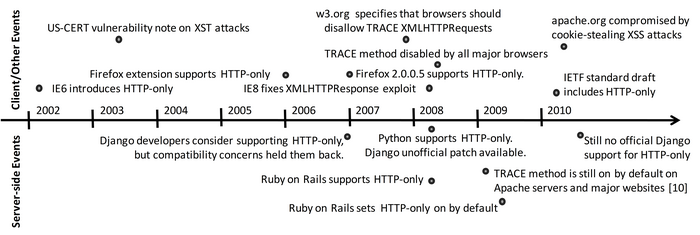Car Immobilizers
Friday, December 24th, 2010Karsten Nohl is in the news again, this time for demonstrating how bad the proprietary crypto used for car immobilizers is. Here are a few articles:
- NewScientist, Criminals find the key to car immobilisers, 6 December 2010. (Note that the criminals in the title refers to evidence that actual car theft is increasing, after many years of steady decline, not to Karsten!)
- Schneier on Security, Proprietary Encryption in Car Immobilizers Cracked, 23 December 2010.
- The Register, Car immobilisers easily circumvented by crafty carjackers: Crap crypto to blame, 20 December 2010. (British publications as so much better at titling than American ones!)
Karsten presented the technical aspects in a talk at the 8th Embedded Security in Cars conference in Berlin.
Even if car manufacturers get the crypto right, relay attacks pose a serious threat, especially for modern cars that do away with the mechanical key completely. See the upcoming NDSS paper by Aurelien Francillon, Boris Danev, and Srdjan Capkun: Relay Attacks on Passive Keyless Entry and Start Systems in Modern Cars.


